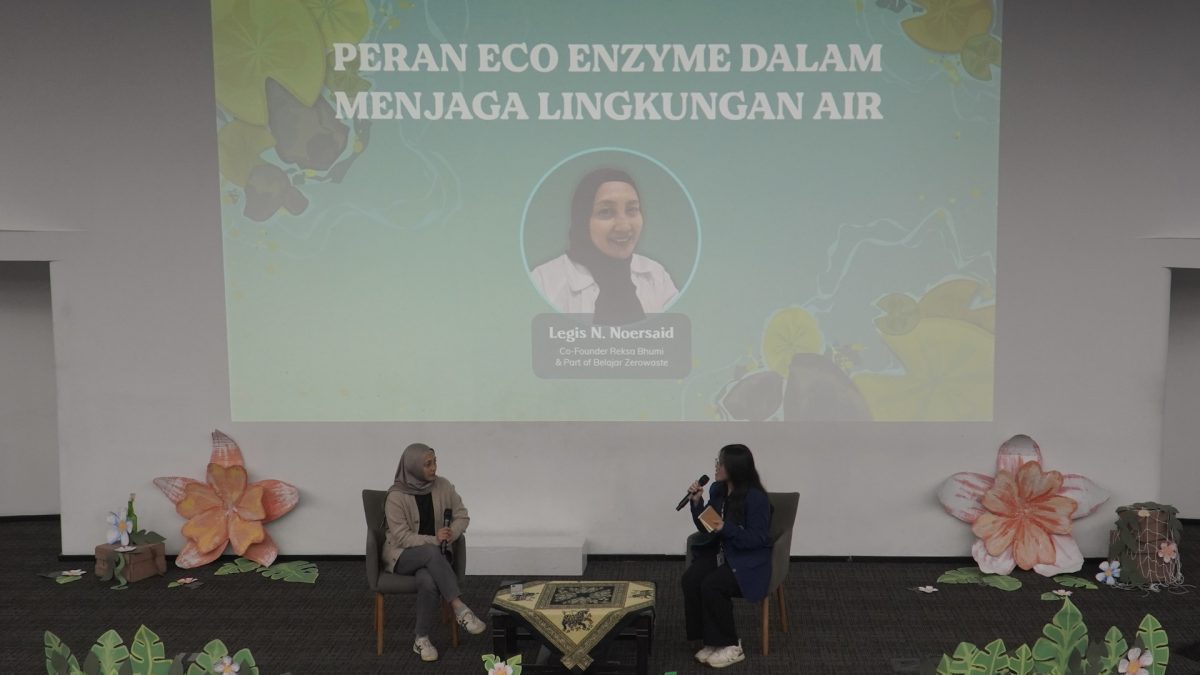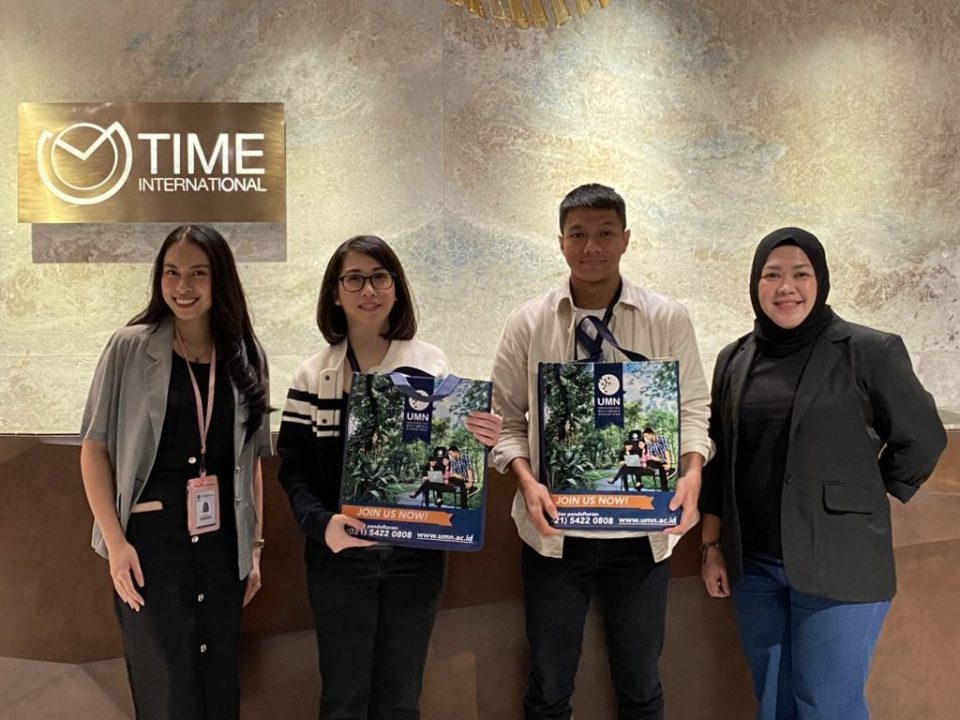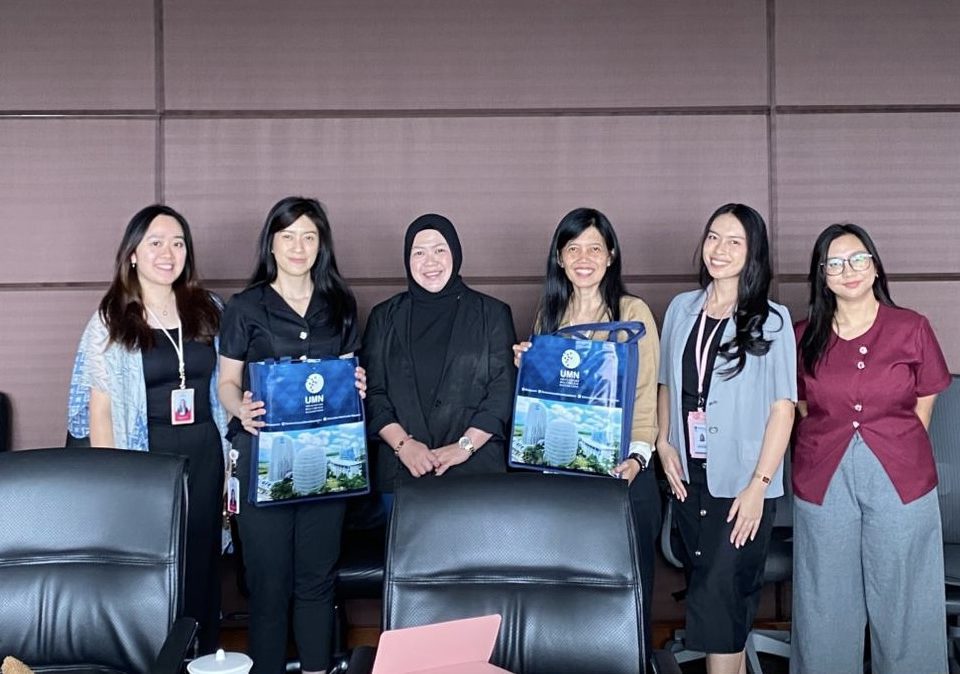
UMN Career Day Expands Career Opportunities for Students
May 30, 2025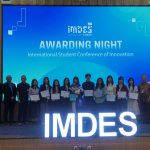
IMDES 2025: Creating Connection: Intelligent Design for a Sustainable Future
May 30, 2025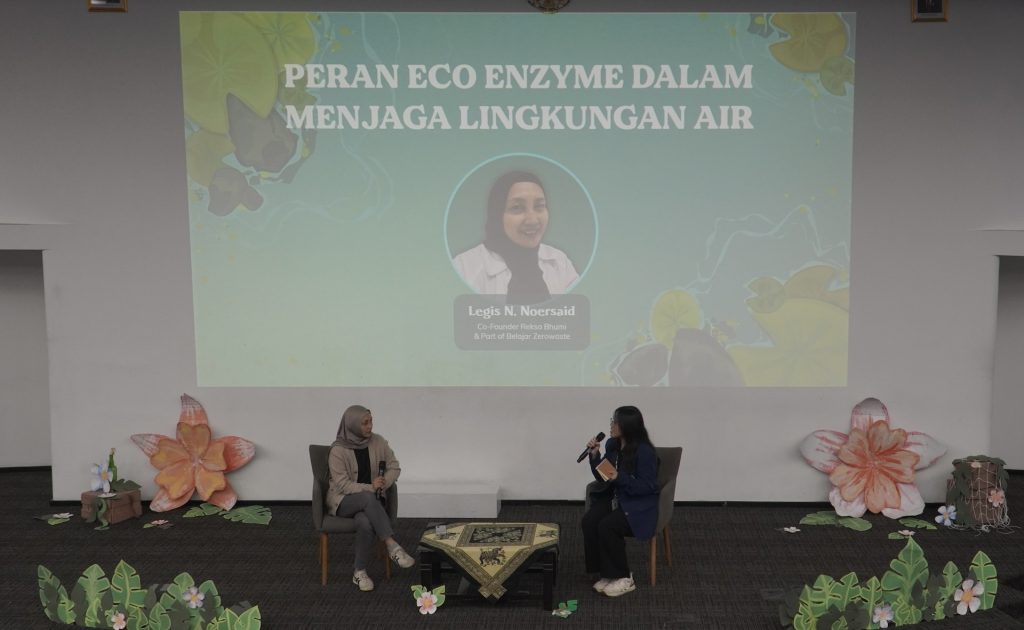
Legis N. Noersaid presented the UMN ECO 2025 seminar. (Doc. UMN)
Tangerang – UMN ECO 2025 held a seminar and workshop on Eco Enzyme production with Legis N. Noersaid, Co-Founder of Reksa Bhumi & Par of Belajar Zero Waste, on Thursday, May 15, 2025. During this event, UMN students not only gained knowledge about zero waste and Eco Enzyme production but also had the opportunity to create Eco Enzymes.
UMN Earth Caring Operation (ECO) is a campus organization at UMN. Every year, UMN ECO organizes various environmental and sustainability activities. UMN ECO’s vision is to promote a sustainable, caring, and responsible approach to protecting the Earth while encouraging students to become agents of change.
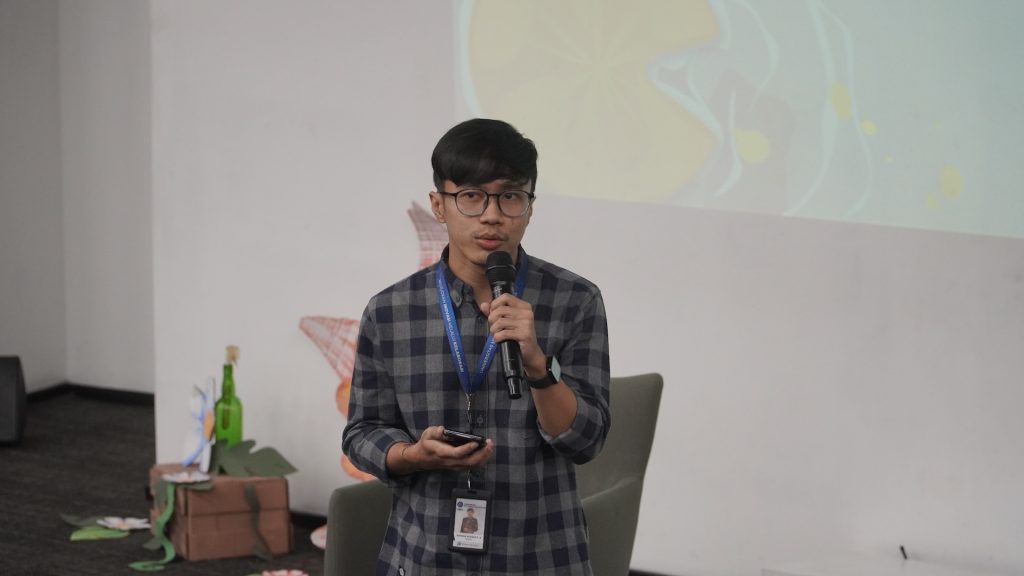
Yovidia delivered her opening remarks (Doc. UMN)
“I hope that by participating in this seminar and workshop, everyone gains new knowledge about Eco Enzymes and students become new advocates for the zero-waste concept,” Yovidia Yofran, representing UMN’s Student Development, said.
Given Indonesia’s increasingly dire environmental issues today, Yovidia also hopes that students can contribute to UMN as agents of change and sustainability through this initiative. It is hoped that more people will understand and be inspired by the zero-waste concept.
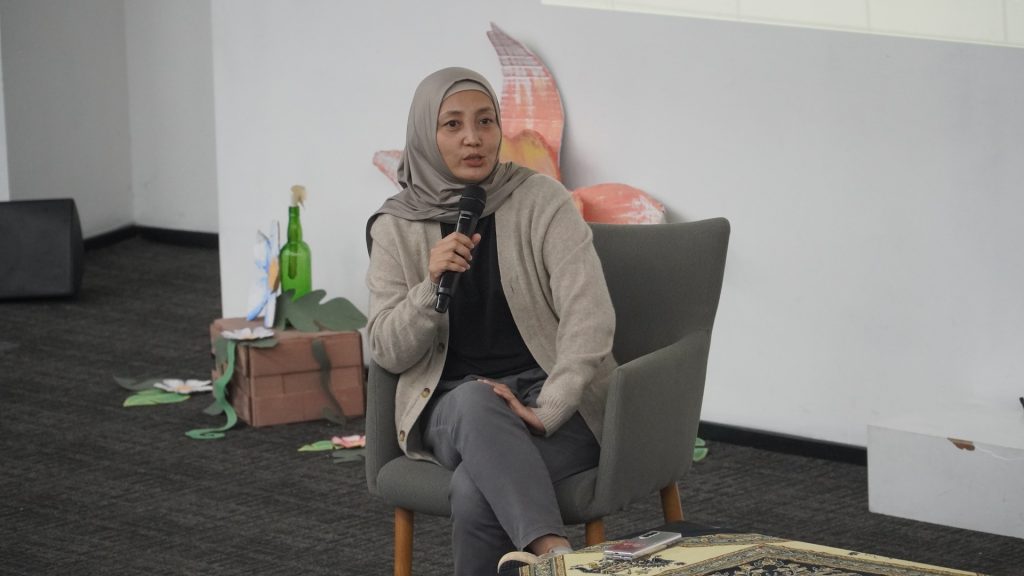
Presentation on Eco Enzyme by Legis (Doc. UMN )
“Currently, Indonesia is not doing well. The waste emergency in Indonesia is becoming increasingly urgent and needs to be addressed more seriously. Landfills in various regions have caught fire and collapsed. Yesterday, during the hot season, there were many fires, and these fires were caused by mixed waste,” Legis said.
Legis explained that waste fires can occur due to the combination of organic, inorganic, and hazardous waste (B3) that produces methane gas. The primary cause of waste fires is food waste.
“Currently, there are many methods being implemented to reduce waste accumulation, such as thrifting and waste sorting, so that waste can be recycled effectively. We can also participate in managing organic waste at home by making eco enzyme,” Legis said.
Eco enzymes are versatile liquids produced from the fermentation of fruit and vegetable peels with added sugar and water, and stored for three months. The fermentation process results in a multi-purpose liquid.
“The concept of eco enzymes was first discovered by Dr. Rosukon Poompanvong from Thailand in the 1890s. He was the founder of the Thai Organic Agriculture Association. Initially, eco enzyme was only used for agriculture, but it turns out that its uses are very diverse,” Legis added.
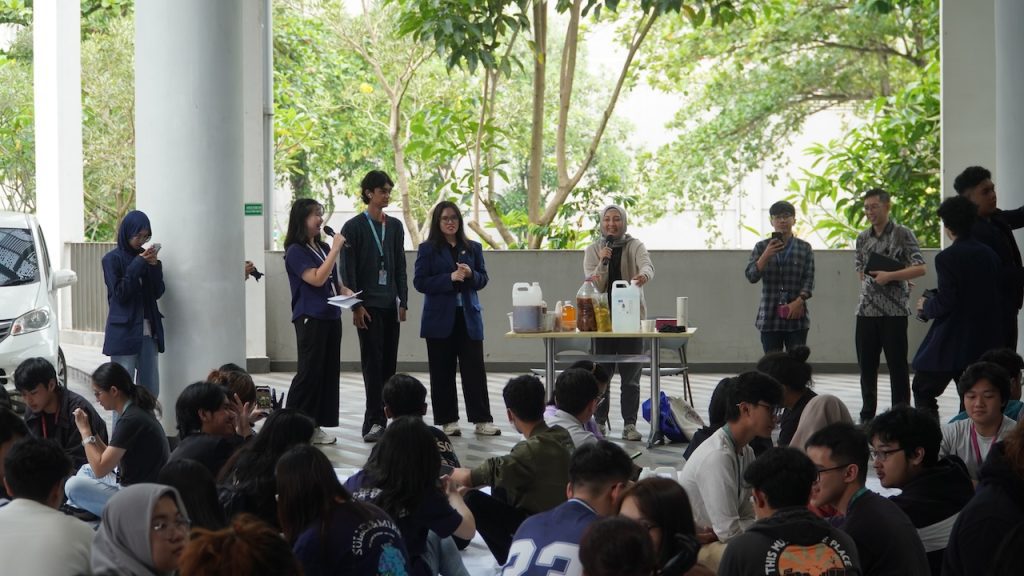
Making Eco Enzyme with UMN Students. (Doc. UMN)
On this occasion, students also had the opportunity to make eco-enzymes directly under Legis’ guidance. The students were divided into several teams and made eco-enzymes using the prepared materials.
Legis clearly explained the steps for making eco-enzymes:
- Prepare a plastic container with an airtight lid.
- Fill it with water (60% of the container’s volume).
- Mix all the ingredients: sugar, organic materials, and water in a 1:3:60 ratio.
- Label the date of production.
- Let the eco-enzyme fermentation process sit for three months.
- Filter after three months, and it can be used.
“Some benefits of eco-enzymes include natural cleaning, health care, agriculture, animal care, air purification, and water clarification. However, the use of eco-enzymes should not be excessive as it can lead to environmental pollution,” added Legis.
By Rachel Tiffany Tanukusuma | UMN News Service
English translation by Levina Chrestella Theodora
Kuliah di Jakarta untuk jurusan program studi Informatika| Sistem Informasi | Teknik Komputer | Teknik Elektro | Teknik Fisika | Akuntansi | Manajemen| Komunikasi Strategis | Jurnalistik | Desain Komunikasi Visual | Film dan Animasi | Arsitektur | D3 Perhotelan , di Universitas Multimedia Nusantara.

